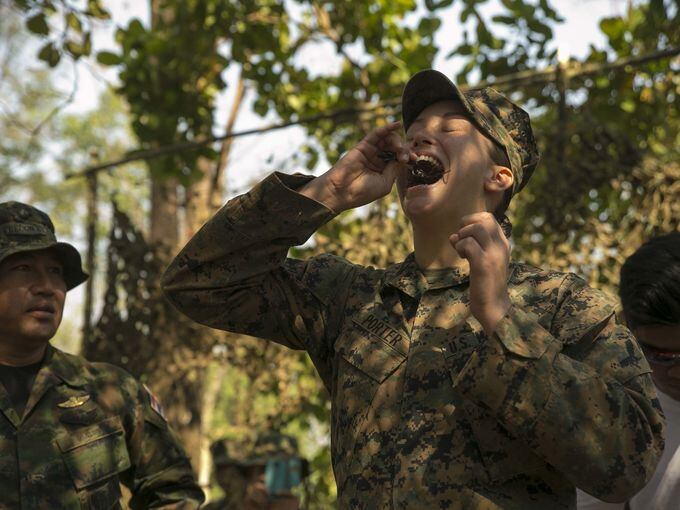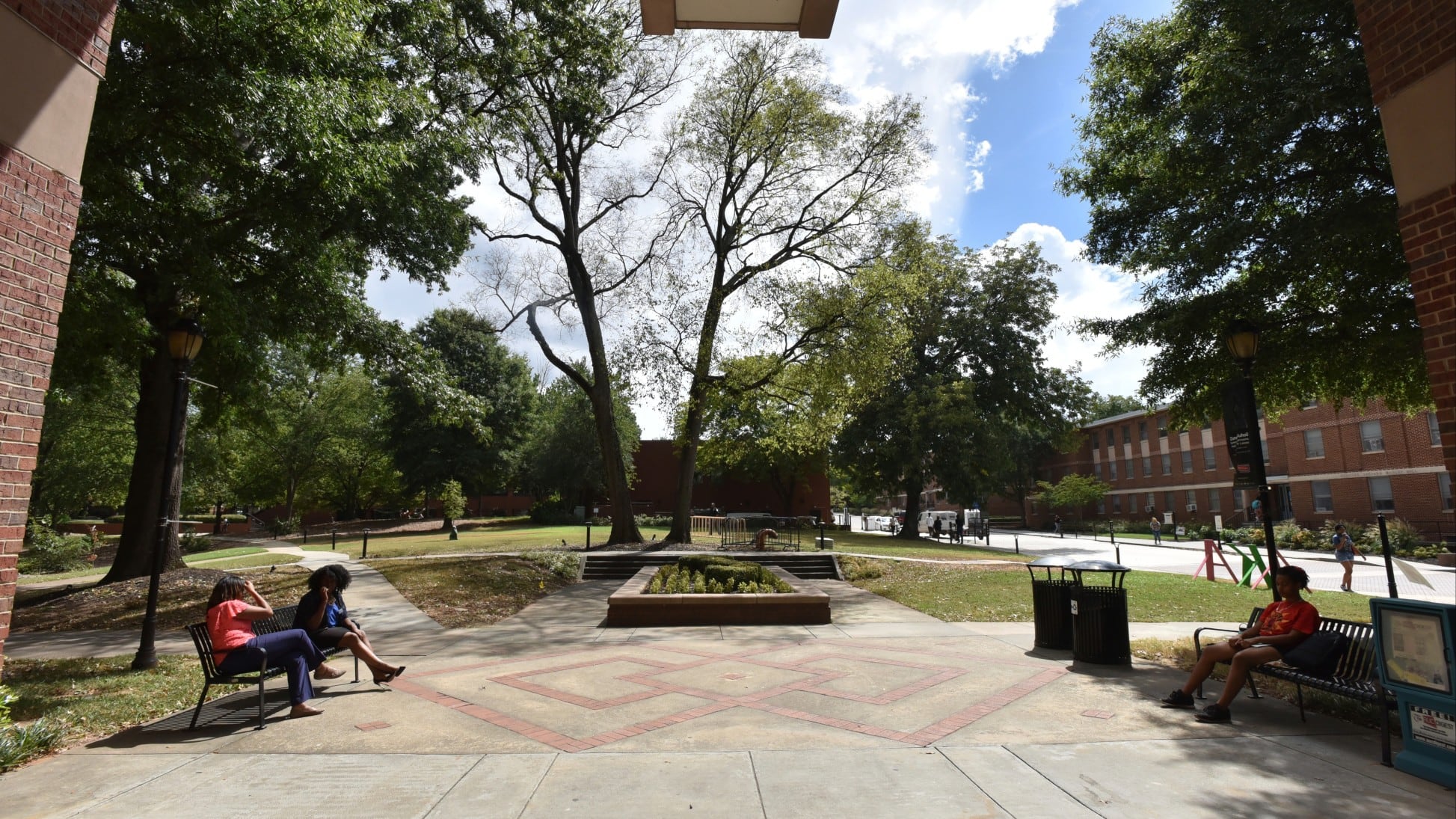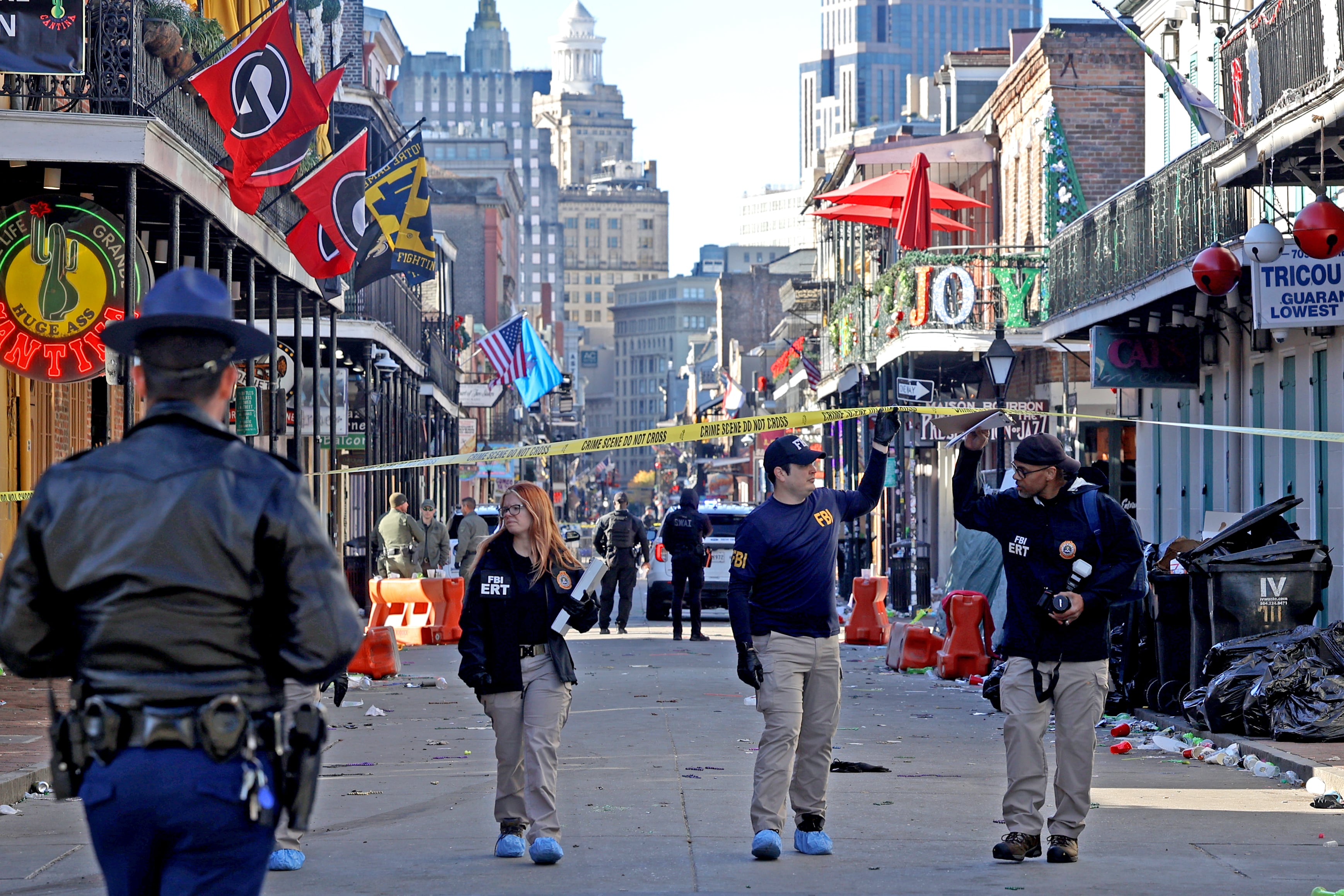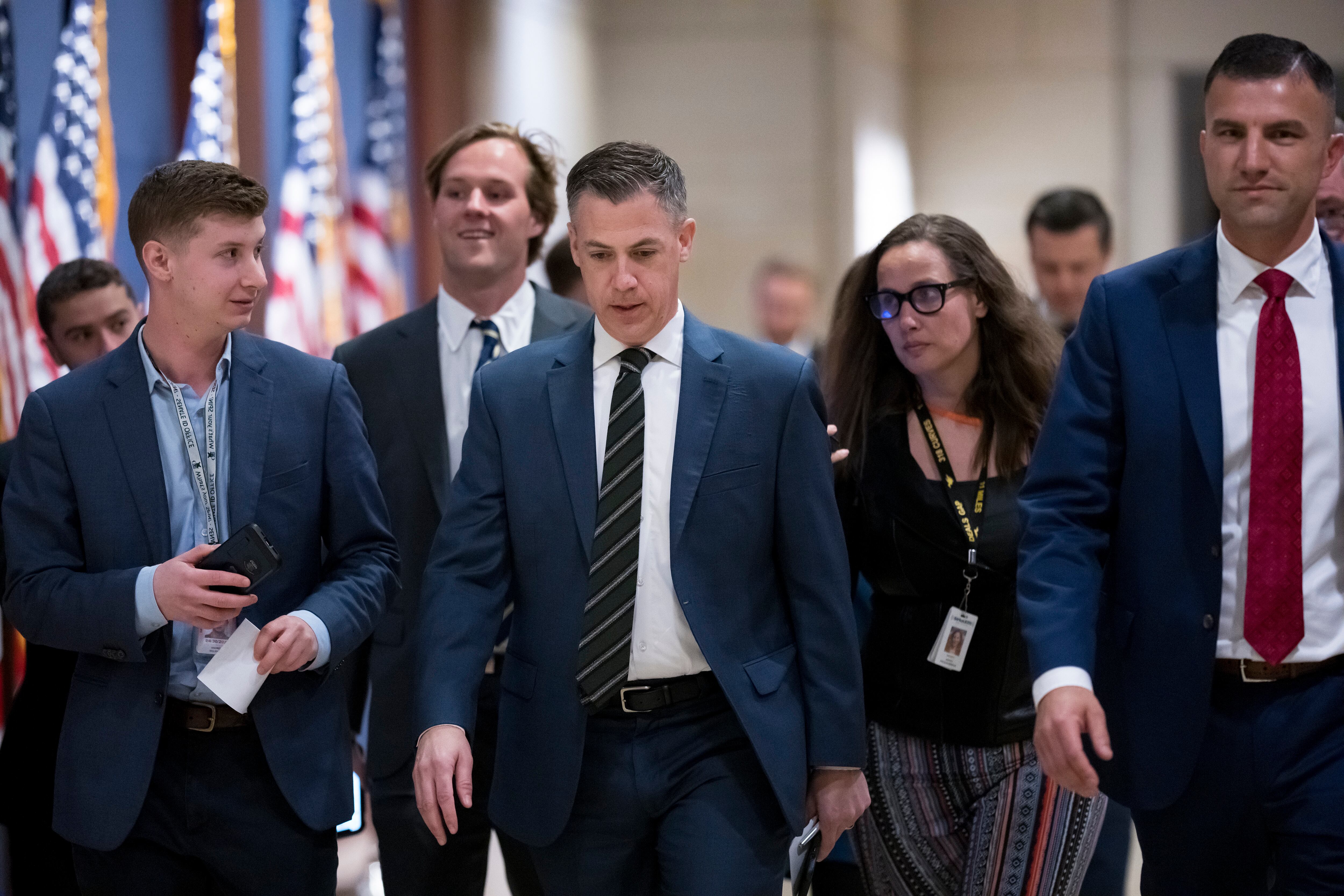More than 1,900 Marines will take part in this year's Cobra Gold exercise in Thailand, which has traditionally involved U.S. service members drinking cobra blood, eating bugs and biting into a chicken with the feathers still on.
The Marine units participating in this year's exercise are the 1st Battalion, 5th Marines; 1st Battalion, 12th Marines and 1st Marine Aircraft Wing, said Staff Sgt. Jose Nava, a Marine Corps spokesman based in Okinawa.
"Cobra Gold 16 includes an increased focus on humanitarian civic action, community engagement, and medical activities conducted during the exercise to support the needs and humanitarian interests of civilian populations around the region," Nava said in an email to Marine Corps Times.
While past Cobra Gold exercises have included practicing amphibious landings and other combat tactics, this year's exercise will concentrate on responding to natural and man-made disasters, he said.
"Our shift in primary focus from combat operations to interoperability among the participating nations to enable effective crisis response … is a continuation of the changes during [Cobra Gold 15], and is a vitally important shift given the combined task force efforts required to respond to such events as the Nepal earthquake," Nava said.

Cpl. Kyleigh M. Porter, from Montross, Va., eats a scorpion Feb. 8, 2015 in Ban Chan Krem, Thailand, during exercise Cobra Gold 2015. The Royal Thai Marines demonstrated several jungle survival tactics and asked for U.S. Marine volunteers to participate.
Photo Credit: (Marine Corps photo by Cpl. Isaac Ibarra/Released) Cpl. Isaac Ibarra, III Marine Expeditionary Force /
This year’s exercise will involve a field exercise that includes a variety of training events, such as evacuating Japanese national overseas, large scale disaster and live-fire exercise on coordinating air and ground operations, he said."Key FTX [field training exercise] events will include a Non-combatant Evacuation Operation (NEO) / Transportation of Japanese Nationals Overseas (TJNO) event that will focus on the processes and procedures of evacuating civilian citizens affected by a large-scale disaster in a foreign country; and a Combined Arms Live Fire Exercise (CALFEX) that will display a Combined Task Force’s capabilities to safely conduct coordinated air and ground operations," Nava said.
Past Cobra Gold exercises have included a jungle survival course, in which Royal Thai forces teach U.S. service members what they can eat and drink in the jungle, such as cobra's blood and scorpions. It was not immediately clear if Marines will once again dine on jungle cuisine this year.
The Marines will be among a total of 3,600 U.S. service members taking part in Cobra Gold from Feb. 9 to Feb. 19, Nava said.
That's the same number of U.S. troops sent to last year's exercise, down from 5,000 in 2014. The U.S. government reportedly scaled down last year's Cobra Gold exercise to protest Thailand's May 2014 coup, which brought the country's military into power.
It was unclear if this year's Cobra Gold would happen when it was announced in April that a working group meeting to plan the exercise had been postponed indefinitely.
"We have decided to proceed with planning for Cobra Gold 2016 because it is an integral part of the U.S. commitment to strengthen engagement in the region, which supports prosperity and security in the Asia-Pacific region," a State Department official told Marine Corps Times.
Cobra Gold is the largest multinational exercise in Asia and has taken place each year for more than 30 years, the official said. Its goal is to strengthen regional cooperation.
"As in 2015, when the exercise was significantly refocused and scaled down in light of the Thai military coup, the 2016 exercise will remain reduced in size to limit the type of activities it contains to reflect our concerns with Thailand's political developments," the official said.





